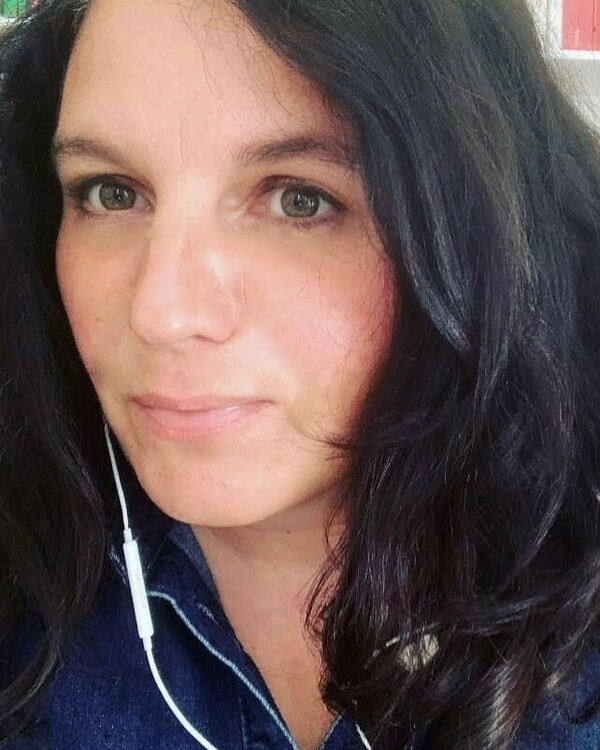
Areas of Expertise
Archaeology, Anthropology, Ethics, Heritage, Sustainability Studies, Museum Studies, Academic Literacies, Theory, Pedagogy
COURSES TAUGHT
Archaeology and Ethics
Celtic Art: Histories, Materialities and Identities
Environmental Conservation and Sustainable Thinking: Natural Places as Heritage (Global Scholars Programme)
London Archaeology: Local and Global Perspectives
London Heritage: Walking the City, Writing the Past
London in the Age of Empire: The V & A Museum
Rivers and Tides: A Biography of the River Thames in London
Sustaining the City: Walking London's Green Places
The Past in the Present: Socially Engaged Archaeology
Who owns the Past ? A Closer Look at the Paradigm of Heritage
Biography
Fay Stevens is an archaeologist and award-winning lecturer and researcher. She has worked in archaeological projects in Armenia, Europe and the UK and has travelled extensively on academic research including Syria, Jordan, USA and Japan. Her work has a clear pedagogy of embedded research and practice with postgraduate teacher training qualifications that developed educational models of reflexive learning, disciplinary writing and academic literacies. She specializes in the philosophy of phenomenology in archaeology and was part of a ground-breaking project at UCL developing phenomenological research methods and thinking in landscape archaeology. In 2022 she received a Creative Commissions for Climate Action Fund from The British Council for leading an international collaborative educational project ‘Reading Water: A Contemplative Ecology of the River Nile (Egypt) and River Thames (London)’ as part of COP27. In 2023 she was awarded Fellowship of the Society of Antiquaries, London.
As an established member of the London Faculty, Fay has developed new courses, given faculty lectures, organized conferences and runs the faculty semester field trips to Stonehenge and Bath. In 2018 she was awarded a development grant for a new course ‘The Past in the Present : Socially Engaged Archaeology’ from the University Department for Social Concerns and in 2019 awarded funded membership from the London Faculty to Chatham House International Affairs Think Tank to conduct further research on heritage in conflict. In 2021 she was awarded a research grant from the Department of Minor in Sustainability Studies to design a new course ‘‘Rivers and Tides: A Biography of the River Thames in London’. Fay was a contributing speaker for the 2022 Notre Dame International and ThinkND interactive series, Global Dialogues: The Worsening Water Crisis, which collaborated with international communities to learn about the impact of climate change on global waters.
Fay is a Visiting Lecturer for the MA in Cultural Heritage and Resource Management at University of Winchester, Sessional Lecturer at University of Oxford (OUDCE and OUSSA) and Visiting Lecturer in academic literacies, research methods, theory and practice for The Royal Central School of Speech and Drama, University of London and Oxford Brookes University, Oxford. She organizes and actively participates in academic conferences and symposia in the UK and abroad and in 2021 graduated (with distinction) on the Professional Certification in Leading Sustainable Corporations Programme, University of Oxford, Saïd Business School.
Selected Works
Walkeology and the Winderkammer of Place. In Y. Ziogas and G.Vermiere (eds) Walking as a Question. Papers from the Walking Arts Conference, University of Western Macedonia 2021 (forthcoming 2023).
Still Points in a Moving World: An Archaeology of the Non-Visual Cultural Marker. Archäologische Informationen (2023)
Review Editor. Introduction to Anthropology. Six Red Marbles Publishing House, 2022.
Composite, created, partial and floating bodies: A re-assessment of the Knossos Temple Repositories Assemblage. In M. Mina et.al. Embodied Identities in the Prehistoric Eastern Mediterranean: Convergence of Theory and Practice. Oxford: Oxbow Books, 25-32 (co-written with A. Simandiraki-Grimshaw, 2016.)
"There is a cage inside my head and I cannot let things out": an epistemology of collaborative journal writing. In T.Lillis, K. Harrington, M. Lea and S.Mitchell (eds.) Working With Academic Literacies: Research, Theory and Design. Illinois: Parlor Press, 2015, 267-279) https://wac.colostate.edu/books/perspectives/lillis/
Writing through the Body. Considering the construction of identity in Higher Education. International Journal on Learning in Higher Education (2014, 19/4, 61-67)
Articulating the bridge between theory and practice: a consideration of posters as genres of successful assessment in European Prehistory. Journal of Research in Archaeological Education (2009, 1/ 2, 41-57)
Elemental Interplay: production, circulation and deposition of Bronze Age metalwork in Britain and Ireland. World Archaeology (2008, 40/2, 238-252)
Identifying the body, representing self: art, ornamentation and the body in the European Iron Age. In J. Sofaer (ed.) Material Identities. London: Blackwell, (2007, 82-99)
Recent Presentations
‘Excavating the Past: Drawing on Archaeology’. December 2022.
‘Messengers and Promises’: A Cultural Ecology of the Somerset Levels, UK.’. University of Western Macedonia Conference on ‘A Bio Art Process of Serendipity’ September 2022
‘Embodied Cartographies. Archaeology, Art and the Creation of Place-Scapes’. People-scapes Research Centre, University of Winchester, May 2022
Walkeology, Wanders, Wonders and Wunderkammers, Podcast for Hampshire History Bites, May 2022
‘Rivers and Tides: A Biography of the River Thames and The Sustainability of Rivers in London’, Global Dialogues: The Worsening Water Crisis, University of Notre Dame International, March 2022
‘Liquid States: A Closer Look at Sustainability and Sacred Water’, Research Seminar with Lisa Caulfield, Director of University of Notre Dame Kylemore, March 2022
ON THE LONDON FACULTY WEBSITE
Who owns the past? Notre Dame London students visit the Society of Antiquaries
London Alumni Series: A class in London helps Jess Krauss reframe the past, and her future
Disciplinary Convergence: Dialogues Between Art and Archaeology. University of Notre Dame, Notre Dame London Conference Abstracts.